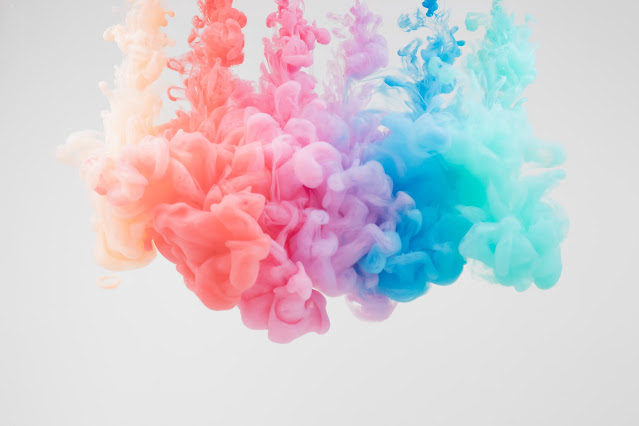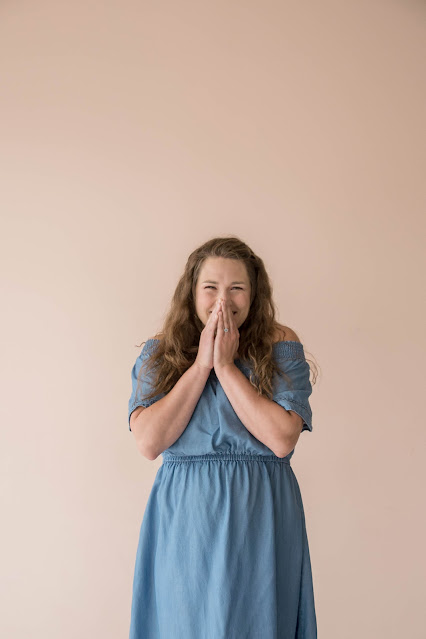I am a bisexual woman in a straight-passing relationship.
Since coming out two years ago, I've grappled with questions like
- Am I really queer if I am married to a man?
- Is my marriage considered a mixed-orientation marriage?
- Is my queer identity worth exploring and affirming?
- Is bisexual the right identity for me?
- Do I bother telling people I'm bi?
I can't answer these questions for all queer folks, but to answer them for myself feels important and affirming. I want to answer these questions publicly, both because I think others can benefit from this type of openness and sharing; and also because I want to be able to return to my own words when I question myself, which happens more often than I'd like to admit.
Am I really queer if I'm married to a man?
Yes. The idea that my sexual orientation is defined by my partner separates my sexuality from my being entirely, actually. My sexual preferences, appetite, and orientation are mine and mine only. I share them as I please, but my partners do not own and therefore cannot define my sexuality for me. They can give opinions, they can give perspective, they can offer reflection; but they cannot make a choice for me. Past queer experiences provide me information about my sexual preferences, but they cannot define me. Only I can do that. The ability to explore and choose what language and terminology to express myself in the world is a power that I claim for myself. I'm bisexual and I'm queer because those are the terms that most accurately communicate my sexual orientation.
People are queer because they are queer - a woman isn't any less a lesbian because she's had relationships with men in the past. A man isn't any less gay because he's had relationships with women. The idea that there is such thing as a "gold-star" lesbian (a lesbian woman who has only been with women) is a holdover from heteronormative purity culture. To use a person's past sexual experiences as "proof" that they are legitimately queer, virginal, righteous, straight, or whatever is a holdover from an overculture that relies heavily on discriminating who is "real" enough to deserve love and who isn't. One might ask themselves - which is more important: double checking to make sure that one only give love to people who deserve it, or loving the whole person whether you fully understand them or not? Are you caught in the throes of queerphobia when someone must meet your standard of queer purity before you accept and believe them? Are you holding that same bar to yourself? Put it away. You're a fucking fabulous rainbow unicorn, goddamit.
Is my marriage a mixed-orientation marriage?
Yes. A highly successful one too. Now, some people may not agree, saying that because a bisexual partner and a heterosexual partner are complementary, their orientations are not different. To this, I would argue that this understanding is rooted in bi erasure, and this is why.
Bisexuality is not heterosexuality. Bisexuality is also not heterosexuality half the time and gay the other half of the time. Bisexuality is bisexuality, 100% of the time: bi people get the whole pie, the whole pizza, all of the time.
My marriage to a straight partner doesn't mean that its only 50% a great marriage, or that I'm only living out 50% of my sexual identity in that relationship (because remember, my queer identity depends on me, not on my sexual experiences). I'm not living a half-life in my marriage. In true bisexual fashion, my marriage is many things at once. It is straight-passing (meaning that most people perceive both my partner and I to be heterosexual and we both benefit from straight-passing privilege) AND is also a mixed orientation relationship.
There is a common perception that most mixed-orientation marriages are between closeted or semi-closeted gay and lesbian folks and a straight partner. These relationships can be fraught with a lack of fulfillment, betrayal, and unhappiness because their sexual orientations are not complementary. But when examining bisexual-heterosexual relationships, I feel that by definition, they are mixed orientation. In my opinion, to assume otherwise is to erase the sexual orientation of the queer partner. Just because heterosexuality can be complementary to bisexuality doesn't mean they are the same. Additionally, a mixed orientation marriage doesn't necessarily have to be an unhappy and unfulfilled one. My straight-passing marriage is affirming to me because my partner is affirming. Its not straight-passing because either my partner or I are too straight to make it be "really" queer: its straight-passing because other people see it that way. That's their problem. I don't own that.
Is my queer identity worth exploring and affirming?
Hell yes. But I don't know yet how to do that, and I'm working on figuring it out. But just like I celebrate and support many other aspects of my being, such as
- getting a haircut that highlights my hair's natural wave pattern
- wear makeup in colors that complement my green eyes
- wear clothes that support, fit, and feel good to my unique body
- practice a spirituality in a way that feels in alignment with my beliefs and values
- decorate my home in a way that feels authentic and pleasurable
I can also give myself permission to celebrate and support my queer identity.
Is bisexual the right identity for me?
Yes.
I've learned from Robyn Ochs that we live in a culture that believes people are primarily mono-sexual, meaning they are attracted to just one gender, whether the opposite or the same gender. But bi-sexuality is opposed to that, recognizing that there are those who are more-than-mono-sexual. Bi-sexuality is an orientation that embraces attraction to more than one gender. It encompasses all genders. The argument that bisexuality is transphobic is one that is misinformed. Bisexuality is all-gender inclusive.
So why not claim pansexuality? I'm not against the label. It works for some people! But I've learned that bisexuality is a highly stigmatized identity in large part because of the AIDS crisis, as bisexual folks - especially men - were seen as people who transmitted the disease across monosexual groups (heterosexual and homosexual). There are those who wonder if the increase in alternative terms to bisexuality, or those which fall under the bisexual umbrella, are modern linguistic attempts to distance oneself from the discrimination and stigma of "bisexual." Because I feel both that bisexuality is an accurate term for my orientation AND that there is power in the reclamation of a stigmatized identity, I choose to identify as bisexual. I do it for myself and for my bisexual foremothers and forefathers. I would have to confront biphobia anyway with a more-than-mono sexual preference. Having language and community, both living and ancestral (in the chosen-family type of way) empowers me to live more fully into my queerness.
Do I bother telling people I'm bi?
Yes.
I find great joy and purpose in being out. I believe that queer folks who come out make it safer for other queer folks to do the same. Its also helped me find deeper connection with queer folks who were hiding in plain sight - many women who I was friends with but did not know were queer came out to me in celebration of our shared queer identities. It was also immensely helpful to be so warmly welcomed by queer folks who were out publicly and discover new friendships there.
It is harder to be out in heteronormative groups. I've been lucky to have been accepted, loved, and celebrated by my family of origin. In other spaces, my bisexuality is largely ignored and/or whispered about to others, but never discussed with me personally. The unspoken agreement to never speak of it is a blessing and a burden - sometimes in relationships that are less stable (like my in-laws) I'll admit its nice to be able to lean back into the straight-passing privilege and blend in a bit. But its also a burden to know that sometimes people in those spaces forget there is queerness among them. There are still hurtful comments. I still don't know how to navigate them. But I tell myself that being queer and present is enough.
Sometimes I'm visibly queer and present - in a rainbow tee or sporting a huge rainbow sticker on my emotional support water bottle. Being visible and queer feels a heck of a lot more high-stakes and dangerous now than it did when I identified as an ally. But when I feel brave enough to be, I tell myself that my mere willingness to be queer and present reminds people that queerness isn't something relegated to closets - its everywhere.
Bisexuality is one of the two spheres in my life where I am the most marginalized by society. I still can't believe that nearly 50% of the LGBTQ+ community identifies as more-than-mono sexual, but is the least represented and understood queer identity. Its because the bisexual identity is twice-marginalized - once by its opposition to heteronormativity and once by its opposition to mono-sexuality. Living in opposition to two very strongly held societal ideals makes visible bisexuality unquestionably necessary and radical to me.
For all the challenges of my queerness, I am protected by a lot of privilege. It is far safer for me to be out and bisexual because of my proximity to systems of heteronormativity (in my straight-passing relationship), whiteness, monogamy, wealth, property ownership, and cis-normativity. It doesn't make my experience as a bi woman any easier, but it also doesn't make it any harder either. Its because of this privilege that I can be out and visibly queer in most places without much threat to my safety. I recognize this isn't the same experience for everyone, and so in no way am I advocating for every queer person to be out. Every person's experience is different. This is mine.
I don't really think I have anything new or radical to say about queerness or bisexuality that hasn't been said by people who have been writing and speaking in these spaces a lot longer than I have. But when I hesitate to write or share or remind myself about the validity of my queer identity, my queer struggles, and my queer joy, I remember back to the words I heard on an episode of Brooklyn 99 that I watched not long after coming out. One of the characters comes out to her coworkers as bisexual. Her boss, who is also queer, pulls her aside and says "Every time someone steps up and says who they are, the world becomes a better, more interesting place."









Social Icons